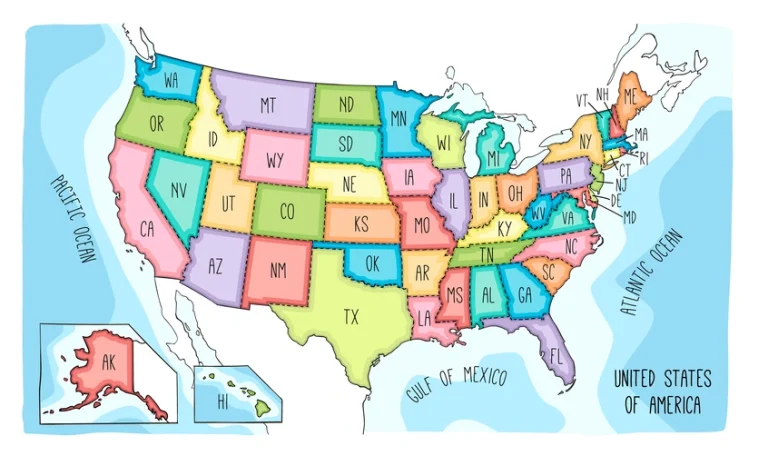New Ivies
The term “New Ivies” is not an official designation, but rather a colloquial term that has gained popularity in recent years. It was coined by Newsweek in 2006, as the staff of Newsweek selected these schools based on admission statistics and interviews with administrators, faculty, students, and alumni. It is often used to describe colleges and universities that have emerged as strong alternatives to traditional Ivy League institutions, and are highly respected by employers and graduate schools alike. These schools are known for their rigorous academic programs, small class sizes, and highly selective admissions processes, which typically result in high graduation and retention rates. This list includes both public and private universities across the country. Some of the colleges that are commonly referred to as “New Ivies” include Amherst College, Williams College, Swarthmore College, and Pomona College, among others.
Boston College | Bowdoin College | Carnegie Mellon University |
Hidden Ivies
With years of counseling experience and research, Howard and Matthew Greene have continued publishing books about higher education, including a newer book entitled The Hidden Ivies, 3rd Edition: 63 of America’s Top Liberal Arts Colleges and Universities, which was published in 2016. In the book, the two authors discussed 63 highly selective small liberal arts colleges and top research universities across the U.S., which differ from Ivy League colleges in that the list is spread across the U.S. rather than just focusing on the Northeast area.
In compiling the list, these are the factors that were put into consideration:
- Resources available for students, faculty, and facilities
- Outcome and Return on investment (ROI) of students
- Faculty and student body – such as culture, student-to-faculty ratio, diversity, etc.
Some of the schools in the “Hidden Ivies” list include Bates College, Carleton College, Haverford College, Middlebury College, and many others. These schools are known for their excellent academic programs, close-knit communities, and highly selective admissions processes.
Northeast Area
| Amherst College Barnard College Bates College Boston College Bowdoin College Brandeis University Bryn Mawr College Bucknell University Colby College Colgate University College of the Holy Cross | Connecticut College Dickinson College Fordham University Franklin & Marshall College Hamilton College Haverford College Johns Hopkins University Lafayette College Lehigh University Middlebury College Mount Holyoke College | Skidmore College Smith College Swarthmore College Trinity College Tufts University Union College University of Rochester Vassar College Villanova University Wellesley College Wesleyan University Williams College |
South Area
| Davidson College Duke University Emory University Georgetown University Cross | Rice University Sewanee: The University of the South Southern Methodist University | Tulane University |
Midwest Area
| Carleton College Case Western Reserve University Denison University Grinnell College | Kenyon College Macalester College Northwestern University Oberlin College University of Chicago | University of Notre Dame |
West Area
| Claremont McKenna College Colorado College | Pomona College Reed College | Stanford University |
Black Ivies
The term “Black Ivy” has been used to describe a group of historically black colleges and universities that are compared to the Ivy League schools in terms of their academic rigor and prestige. Some well-known historically black colleges and universities are: Howard University, Spelman College, Morehouse College, and Hampton University, among others. The list is based on Jaqueline Fleming’s Blacks in College, published in 1984.
| Dillard University Fisk University Hampton University | Howard University Morehouse College Spelman College | Tuskegee University |
Jesuit Ivies
The term “Jesuit Ivy” refers to a group of Jesuit colleges and universities that are often compared to the Ivy League schools in terms of academic quality, reputation, and selectivity. You do not need to be Catholic or a Jesuit to attend these schools, but you will experience and learn about Jesuit principles and strive to embody their key values of meaning and empathy. There are 28 Jesuit Colleges in the U.S., ranging from small liberal arts colleges to top research universities.
Some of the colleges and universities that are commonly referred to as Jesuit Ivies include Boston College, Georgetown University, Fordham University, and Loyola University Chicago, among others. These schools are known for their rigorous academic programs, commitment to social justice, and emphasis on a well-rounded education. These schools often have smaller class sizes, more personalized attention from faculty, and a strong sense of community, setting them apart from larger institutions.
| Boston College Canisius College College of the Holy Cross Creighton University Fairfield University Fordham University Georgetown University Gonzaga University John Carroll University Le Moyne College | Loyola Marymount University | St. John’s College |
Seven Sisters
The term “Seven Sisters” is special and unique because of its history. The Seven Sisters are highly selective liberal arts colleges in the Northeastern United States that were historically women’s colleges.
These colleges were founded between the mid-19th and early 20th centuries and were designed to provide women with an education comparable to that offered by men’s colleges. The Seven Sisters were often considered the “female equivalent” of the Ivy League institutions, and their graduates went on to make significant contributions in various fields, including politics, education, and the arts.
The term “Seven Sisters” is not commonly used today, as many of these colleges have become coeducational or have merged with other institutions. However, the legacy of the Seven Sisters lives on, and their impact on women’s education in the United States continues to be celebrated.
| Barnard College Bryn Mawr College Mount Holyoke College | Radcliffe College | Vassar College |
Barnard is currently affiliated with Columbia, but remains independent. Up until now, Radcliffe College and Vassar College are no longer exclusively women’s colleges. Radcliffe has merged with Harvard College, and is now a research institute. Finally, only Mouth Holyoke College, Wellesley College, Smith College, and Bryn Mawr College are still private women’s liberal arts colleges.
Besides these terms, there are some other unofficial and unpopular terms, such as Public Ivies, STEM Ivies, Southern Ivies, that students can utilize to research universities. Above are some of the most popular terms coined historically, categorizing schools into different categories based on their unique focuses and levels of prestige.










